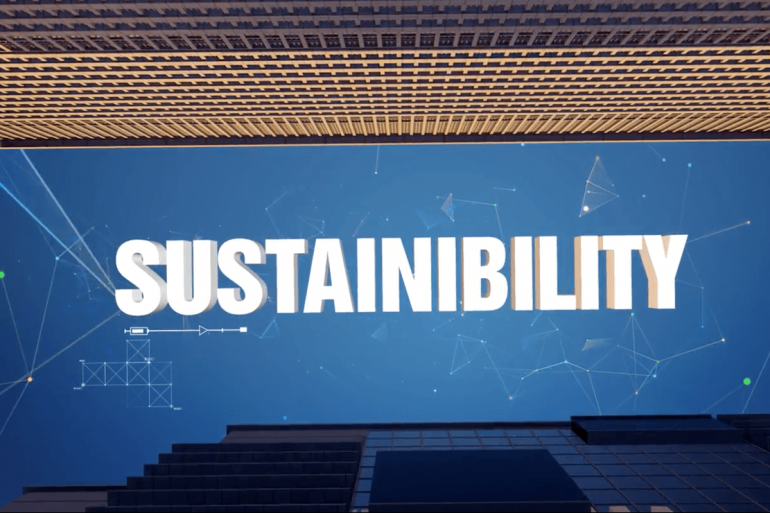Why should companies incorporate sustainability into their businesses?
What does any creature need for a good quality of life?
All living things need clean air, fertile lands, unpolluted rivers and uncontaminated seas: all these are unquestionably essential for the continued survival of the earth.
Although this is so clear, do businesses care?
Think about three important questions:
- What are the advantages of implementing sustainability policies?
- Is it worth it?
- What if businesses refuse this new norm?
You know what ‘sustainability’ means to a business, don’t you?
‘Sustainability’ in a business describes the ability of businesses to coexist with, and even enhance, their environment.
These days, big businesses are increasingly being pressured to incorporate ‘green’ and ‘socially responsible practices’ into their corporate strategy.
Is ‘profit’ the only aim in business?
In November 2021, during the Singapore Fintech Festival presentations on sustainability, the business community’s initial (and typical) reaction was:
“This is topical and important. But is it really relevant to our business?”
Participants viewed ‘sustainability goals’ as something ‘not relevant to profit’.
To some businesses, ‘sustainability’ only makes sense if their business can make greater profits.
So, some business owners deliberately close an eye to sustainability.
That business is not there only to generate profit is a universal truth.
Yet, are businesses prepared to accept this?
If whalers continue to kill whales with no thought to their extinction; if timber companies cut down trees with no thought to vegetation and animals, in what kind of world would our grandchildren live?
Who would – in the name of profit — deliberately create a desert for their descendants?
So, it is selfish and self-destructive to use ‘profit’ – as a measure of business success.
Could ‘sustainability deliverables’ be measured?
Twenty years ago, no one could draw a straight line between how the behaviour – irresponsible behaviour – of a business would affect global temperature rise or how that prejudiced – or enhanced – the value of a business’s assets.
All that has changed.
Increasingly, independent international bodies measure and give – or remove – ‘credit’ or ‘points’ from companies that practice sustainability goals.
No one will invest in a company that secretly abandons drums of poisonous waste material in caves.
No one would dare to be part of a board that kills whales or cuts down rainforests.
The important point is: true sustainability practices are an intangible asset.
Institutional investors like to associate themselves with responsible companies.
If a company’s sustainability implementation improves economically, it stands a better chance of survival and success.
Advantages
Let us see how sustainability is crucial for the survival of any business.
#[1]. It creates new markets
Any corporate move towards sustainable responsibility brings into play new factors.
Businesses become more innovative.
They offer new products.
They provide novel services.
Tesla
Its electric-powered vehicles cut carbon monoxide emissions.
To a great extent, BMW has also seen the writing on the wall.
All that opens new revenue opportunities.
In the financial services sector, new ‘products’ have emerged: e.g. ‘green bonds’, environmental risk solutions, e.g. insurance linked securities, and ‘carbon credit’ trading platforms.
Sensefolio, a data provider
Sensefolio ‘rates’ companies on their commitment to environmental, social and corporate governance values.
They use artificial intelligence to ‘rate’ a business’s Sustainability Commitment.
The ratings cover wide areas of businesses, ranging from clothing to groceries.
#[2]. Sustainability offers a Unique Selling Platform
In a few years, sustainability will become the norm.
Right now, however, investors see companies that support sustainability as ‘unique businesses’.
And these businesses are more attractive.
This one factor – this uniqueness — keeps them leaps and bounds ahead of their competitors.
Easy Jet
It is an airlines company.
Recently Easy Jet announced that it will operate ‘net-zero carbon flights worldwide’ by planting more trees.
It promises to cut down carbon dioxide release.
This will cost the airline $25 million in the next financial year.
But guess what?
Its Sustainability Policy will boost its brand image.
The $25Million spent is a catalyst.
#[3]. Regulators like it
All over the world, regulators are increasingly imposing specific sustainability requirements.
For example, the European Union will soon make new laws.
These laws would require financial markets to disclose which of their investments do not comply with a set of harmonised sustainability criteria.
Other authorities around the world are following suit.
Hong Kong is an Asian example.
Australia is hot on its heels.
#[4]. You become less of a target
A business that practises sustainability initiatives indicates a responsible management, a healthy corporate culture, and environmentally conscious operations.
When regulators carry out risk assessments, businesses with a strong sense of respect for the Earth make them less of a target.
#[5]. Sustainability creates Customer Loyalty
Shelton Group, Nielsen and Horizon Media are consultancies.
A recent survey they conducted suggests that most consumers are more likely to buy from businesses that practice sustainability policies.
Consumers will spend more money on sustainably manufactured products.
For the modern consumer, sustainability is a personal concern.
They worry if the world, as it is now, is a safe place to live.
They worry about the well-being of future generations.
#[6]. The pursuit of sustainability is now a strong Consumer Lifestyle
So, a company that pursues sustainability goals will make consumers happier.
It gets brand loyalty.
#[7]. Sustainability has another intrinsic value – it generates a new world of business
‘Hard-wiring’ sustainability into business is a concrete expression that you care about the Earth.
Savvy enterprises have now realised that investing in sustainability is not just an act of philanthropy.
It also generates a whole new world of business opportunity.
Imagine if every business makes it its responsibility to respect the earth.
Before sustainability becomes the new normal, early movers will benefit the most.
Is your business one of them?
Or will you be left behind, in the wake of a New Earth?





